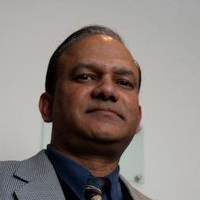Lessons In Unity #1 – Concepts
DRAFT QUALITY FOR VIDEO MAKING – This isn’t the final article
Asalamo Alikum Brothers and sisters,
Today, we’re going to start the first episode in lessons in unity: our title today is about the definitions and concepts about unity, and other concepts that goes against unity of Muslims.
First of all, what’s unity?
Finding a specific definition isn’t my ideal way of presenting things, but let’s try to go around some definitions to understand what we’re talking about.
Logical definition:
Unity is grouping some units together to form a more solid structure. Let’s see an example from the wise man who while dying, wanted to teach his kids the meaning of unity, so asked everyone of them to take a stick and break it, it’s easily broken, but when when we collect those sticks together, it’s much more harder to break.
And told them: That’s why my sons you’re supposed to be always together; not to be easily broken individually by your enemies.
So, according to this definition; unity is being safe by being with those who share the same fate, you unite with them to be safe, so if you can handle it yourself, why to unite ..
Strategic definition:
Let’s go across some strategic definition, that definition is much more clear in business and military, achieving an economic benefit or a strategic advantage.
If I as a single unit will be able to achieve a little, and If I united with some other people who share my vision, we’ll together have much more resources, we’ll be able to achieve more profit individually, or defend ourselves against common enemies, with much more “resources”.
So unity is sharing of resources to achieve things that couldn’t be achieved individually. So, there is still something for the “self” that motivate people for unity and when I think about establishing such strategic unity, I should be wondering; what’s in it for me ..
Islamic definition:
So which definition of those would be more close to the idea of Muslim unity, in Islam we have a more solid concept about unity:
“The Believers are but a single Brotherhood.” [Al-Hujurat 49:10]
So it’s nothing like the solid structure or the strategic allegiance, it’s sharing of not only destiny but the way that leads to it too, not upon fear from challenges or profit and strategic advantage, but upon brotherhood!
This is the strongest human relationship as we’ll see, if we look to the issue individually the meaning of being a Muslim is being as close as my brother and sister.
So, why aren’t Muslims united now a days! Where there is always problems among Muslim countries, and Islamic groups and even different schools of thought, why there is always attacks even hatred sometimes inside the mosque.
In this series we’ll be going through the major incidents in our Islamic history that sharply demonstrate the meaning of unity, starting with unity between individuals up to unity in Ware and strategic unity. These lessons are expected to inspire us towards achieving unity as individuals and communities as well.
Concepts the goes against Muslim unity
So, fundamentally what’s the major points that hinder Muslim unity, these are the easiest to dive through, that’s why we’ll start with these defninitions.
Racism:
Judging people based upon their race and background, prophet moahmed told “let it it’s rotten” when he talk to his brother about his background. In today’s world everybody think racism is for close-minded uneducated people, so the practice of racism is usually not hugely clear, instead it’s covered by gestures, and unclear practices, so that person practicing racism won’t but attacked or identified as a racist.
Islam totally goes against racism and breaking the bound of bounds of brotherhood based upon, race or background. Prophet Mohamed PBUH said: “”
Nationalism:
Nationalism is grouping certain people based upon geographical location, and calling themselves a nation, with a separate destiny, with separate identity and with separate methodologies.
Let’s face it nationalism isn’t a new concept, human nature love belonging to a specific group of people, feeling secured and protected, even prophet Mohamed identified that as one of the most basic human needs.
Some people attack anyone saying where is he coming from, that’s extremism, Khalid ibn El-Waleed, used flags to make people jealous and get better results for the group, is he a nationalist, understanding and common sense is what our religion Is about.
Sectarianism:
I understand that sectarianism is a sensitive issue in the Muslim community, while we’re seeking to unite, we’re not supposed to tolerate altering and changing our religion.
Why Abu Bakr didn’t go easy with whom denied zakat because it’s a part of Islam and denying a part of Islam or changing it shouldn’t be tolerated in a Muslim community.
So the point to eliminate the effect of Sectarianism on the Muslim community is by scholars from different “sects” to reject any practices that goes against the authentic teachings of Islam.
Next Lesson:
In the next episode, we’ll see how unity had been between companions of the prophet, how they blended together to form a solid community, that enlightened the whole world, and got the lowest level of crimes ever, no crimes for 3 whole years, solidarity to an unbelievable level.
Looking forward to meet with you tomorrow, with how Sahaba (RA) lived in unity within the Muslim community.
Asalamo Alikum




